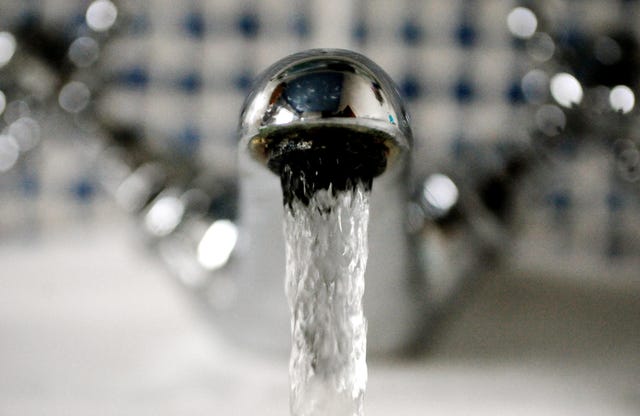Water firms to return £158m to customers over leaks and pollution failings
In an annual performance report, regulator Ofwat revealed that there has only been a 2% reduction in pollution since 2019.

Water companies will have to take £157.6 million off consumer bills next year after a “damning” report revealed they continue to miss targets on pollution, leaks and customer satisfaction.
In an annual performance report, regulator Ofwat revealed that there has only been a 2% reduction in pollution since 2019, despite firms committing to cutting it by 30%.
Not one company achieved the regulator’s top category of “leading”, while Anglian Water, Welsh Water and Southern Water fell into the lowest of “lagging”.

Despite this, Thames Water will have to pay £56.8 million, the biggest penalty for the fourth straight year. Anglian Water’s penalty is £38.1 million, Yorkshire Water’s is £36 million and Southern Water’s is £31.9 million.
David Black, chief executive of Ofwat, said the report was “stark evidence that money alone will not bring the sustained improvements that customers rightly expect”.
He added: “It is clear that companies need to change and that has to start with addressing issues of culture and leadership. Too often we hear that weather, third parties or external factors are blamed for shortcomings.”
Environment Secretary Steve Reed said the Government would carry out a full review of the sector.
He said: “Our waterways should be a source of national pride, but years of pollution and under-investment have left them in a perilous state.”
Ofwat proposed that firms hike bills by £94 on average over the next five years in a July draft review. The figure will be finalised in December after negotiation with the sector.
Meanwhile, it is expected that even the biggest penalties will only add up to taking a few pounds from household bills.
Helen Campbell, Ofwat’s senior director for sector performance, vowed to “challenge” firms, adding that they must spend money from bill hikes “effectively” in future.
Ms Campbell suggested firms use telemetry to measure the performance of pipes and sewers, which could help them identify leaks faster.
“This isn’t novel. This isn’t new. There are some good practices in the water sector, but we need to see an awful lot more,” she said.
On Monday, a report from the Environment Agency found that almost a fifth of water supplies are being lost through leaks before they reach customers’ taps.
James Wallace, CEO of campaign group River Action, called the penalties “a drop in the ocean for polluting water companies that have handed billions in dividends and interest payments to investors”.
Mike Keil, of the Consumer Council for Water, added the poor performance “will do little to reverse the unprecedented decline in people’s satisfaction and trust in water companies”.
Ofwat judges the performance of water companies in England and Wales each year against the “stretching” targets they set in 2019 for a five-year period until 2025.
If they fail to meet these, Ofwat restricts the amount of money they can take from customers.

Severn Trent, SES Water, Northumbrian Water, and United Utilities beat their targets and will be allowed to charge more next year, as part of an incentive scheme.
Nonetheless, companies as a whole have only reduced leaks by 6% since 2019, while customer satisfaction scores across the sector have hit the lowest level since Ofwat started measuring it in 2020.
Gary Carter, national officer at the GMB union, called the report “damning”. He added: “If the private sector wants to run water companies then shareholders should be investing their own money not expecting bill payers to bail them out.
“Ofwat is calling for a change in culture in the water companies, but it’s a sector which is broken.
“Water companies are not going to change themselves. The Government needs to go further and faster and fundamentally reform the whole sector.”




